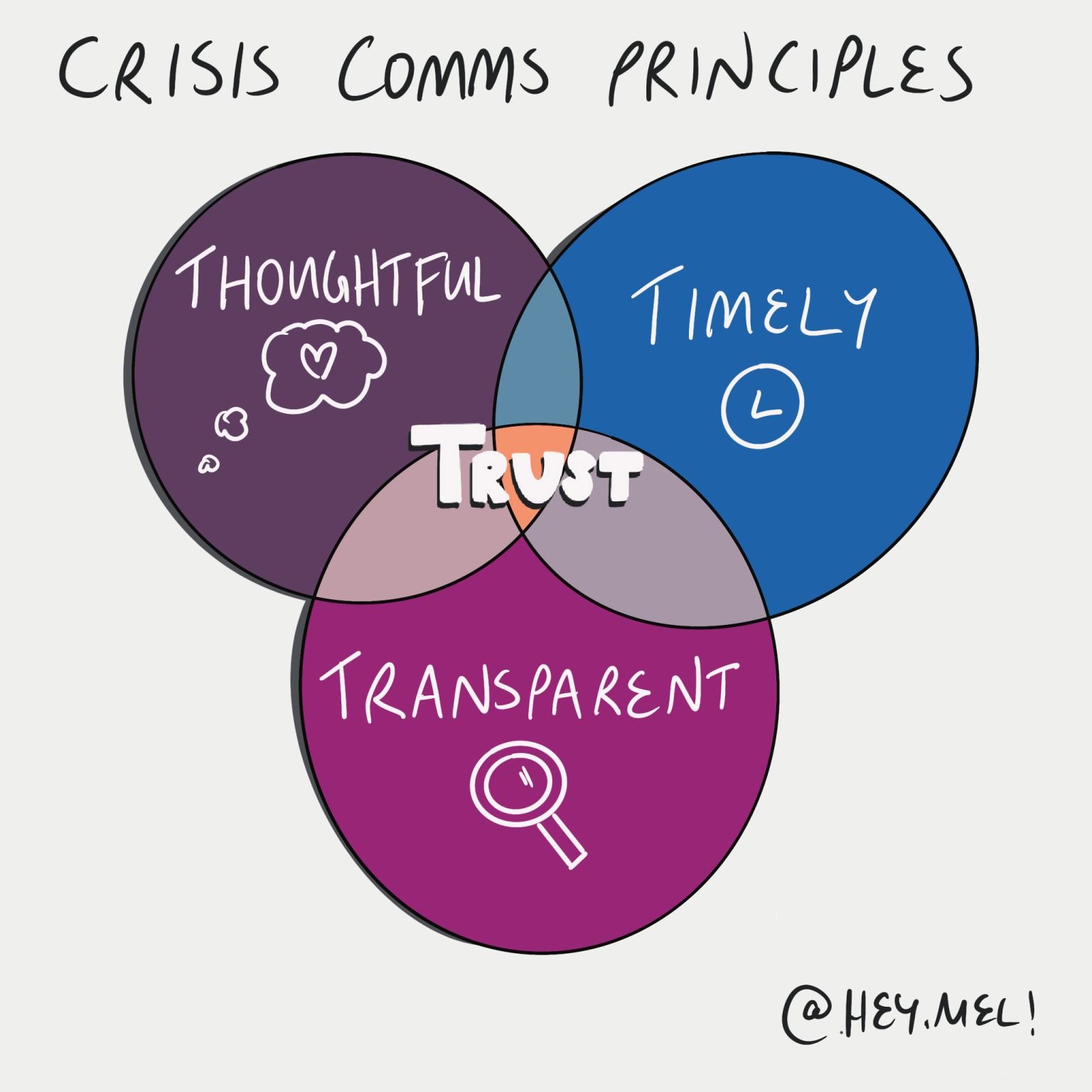Three key principles of crisis communication
We always say the best thing you can do to manage a crisis is be prepared for one! That’s where having put the time and effort into developing a crisis communication plan really pays off - especially if everyone is also trained in how to use it!
But when a crisis strikes, even if you don’t have a plan there are three key principles you should remember that will help guide your communication.
Remember that crisis communication is all about maintaining people’s trust in your organisation and its leadership. It’s absolutely critical to how well your business ‘weathers the storm’ (literally or otherwise!). So having these ‘Three Ts’ of crisis communication in your back pocket will do you a world of good.
Timely
How quickly you respond in a crisis will ultimately determine how well you can control the narrative. During the ‘golden hour’ of a crisis, you need to get out quickly with an initial statement that shows you’re aware of the issue, you’re taking steps to manage it, and your leadership is prioritising its response.
When it comes to a crisis, there’s no time to faff around on semantics, reviews and approvals. The people who are accountable need to know this, and act accordingly. That means - down tools, focus on the crisis response, trust your people, and move quickly!
Transparent
Lying, fudging the facts, or being intentionally vague will only come back to bite you later. Your people, customers, shareholders, media, and all other stakeholders will find out the truth eventually. And if you’re not the one sharing the truth, your reputation will be in tatters! It’s okay to say you don’t have all the answers or all the facts yet when that is the case - but be open about it, and share what you do know if it is safe to do so. Being transparent builds trust - people appreciate open, honest, genuine communication.
Thoughtful
Being thoughtful in our crisis communication means displaying empathy for the people involved. It means using messaging - from the right people, to the right people - that shows you’re aware of the impact of the crisis. These messages are an opportunity for you to show you care, and that you’re putting others first. It’s also an opportunity for you to demonstrate your credibility and expertise by thoughtfully talking about what you’re doing to address the issue, in a way that is sympathetic to people who are impacted.
By putting these three Ts into action - whether planning for a potential crisis or responding to one that’s happening - you’ll be in a great position to communicate effectively.
Does your organisation have a crisis comms plan?
If not, we can help! Check out our crisis communication packages, where we create your organisation’s plan and teach you how to use it.

